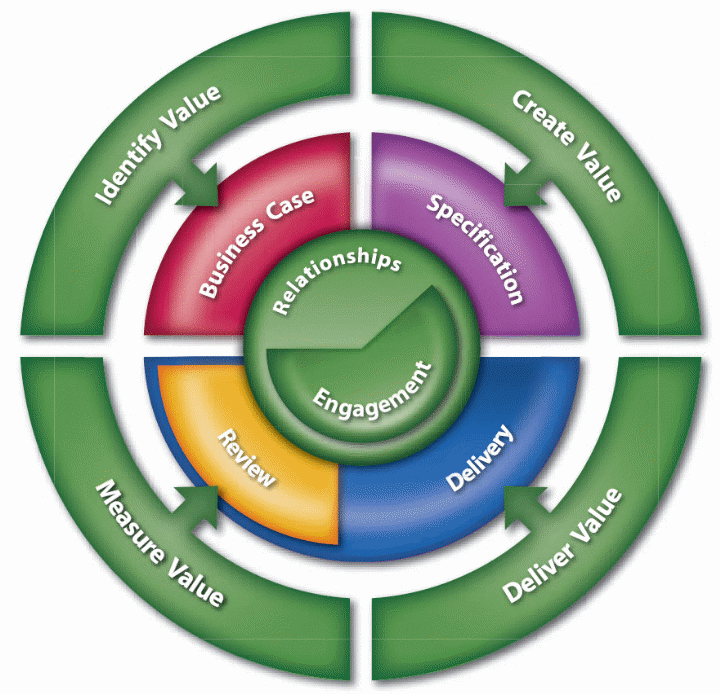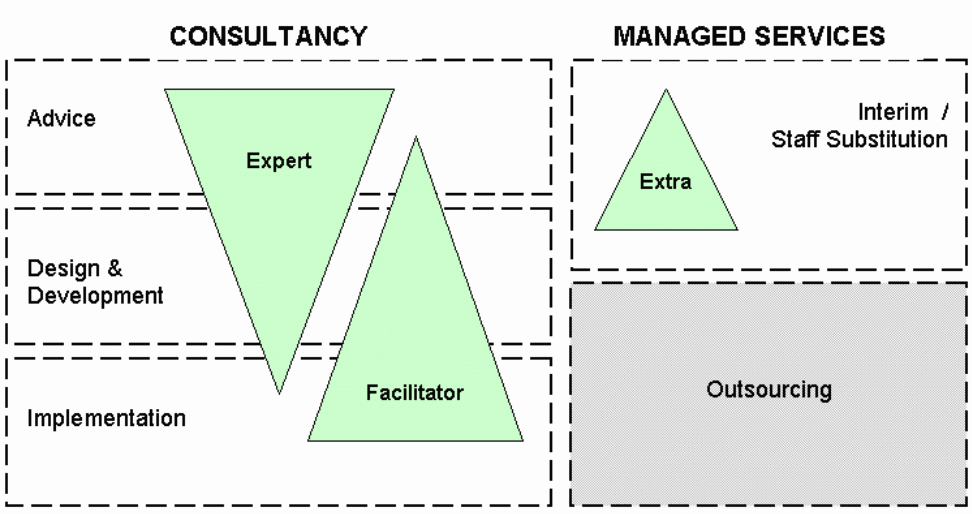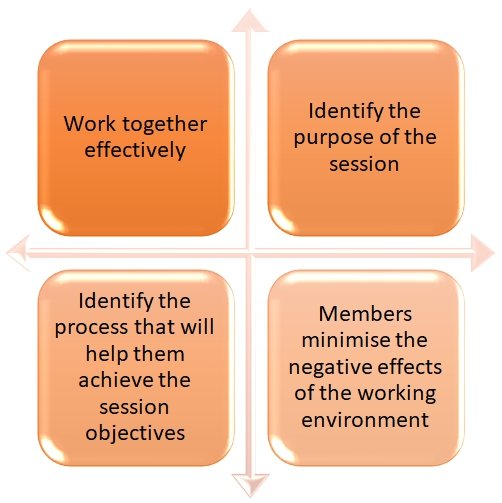Topic interpretation
The aim of the topic is to understand the management consultancy processes through the application of the consulting process model. In the model, customers depend on management consults for objective advice and assistances that relates to the strategy, structure, management in addition to organisation operation processes that are essential for the pursuit of its long-term objectives.
In the process of providing assistance, the management consultants identify options; provide recommendations as well as additional resources that are necessary for the implementation process.
Introduction
Management consultancy can be defined as the creation of value to the organisation through the use of assets and knowledge as well as techniques so as to improve the performance of businesses. The process can be attained through the provision of objective advice or through the implementation of businesses solutions (O’Mahoney 2010, p.54).
The definition specifies certain steps that consultants are supposed to undertake with the customers so as to achieve the desired results. These steps include identifying the problems, proposing solutions to the problem and helping the customer to implement the proposed solutions (O’Mahoney 2010, p.54).
The decision to use consultants is costly to the customer both in terms of finance and time. Therefore, the benefits derived from consultants must outweigh the cost involved. Based on these facts, management consultants must ensure that what they provide should improve the performance of the customer’s organisation and help achieve its objectives (O’Mahoney 2010, p.54).
In addition, the contribution to the customers firm should be more valuable than what the current management provides or new recruits can contribute to the organisation. That is, the consultants should add more value to the customer’s organisation. Therefore, the paper will examine various aspects of management consulting that concern both the customer and consultants.
Consulting process
There are various stages through which the consultants must undergo in order to provide quality services to their customers. Indeed these steps are essential in the process of consulting and in the delivery of quality services to the customer (O’Mahoney 2010, p.60). The first stage in the consulting process is to understand the issue or the problem at hand. That is, understanding the customer’s problems and needs. This step involves identification of the problem and defining the scope at which it can be solved.
The second step is assessing the needs of the customer. In other words, the consultant evaluates the problem to come up with the best possible solution. The needs are also assessed to recommend the process. The next step is to design the course of action for the implementation process (O’Mahoney 2010, p.73).
The final stage is the evaluation of the whole process so as to continuously improve on the entire processes. In general, the complete process includes identifying the problems, proposing solutions to the problem and helping the customer to implement the proposed solutions and finally evaluation of the entire process (O’Mahoney 2010, p.74).
Consulting and management roles
Management through its functions has various roles to play to ensure that the assigned tasks are completed. Management has the responsibility to plan, organise, staff, direct and controls the consulting processes (Biggs 2010, p.10). For management to achieve these functions, certain qualitative attributes must be in existence. These qualities includes interpersonal, informational and decisional.
Interpersonal qualities look at how the management reacts with others within the organisation as liaison, leaders and figureheads. Interpersonal qualities are essential in developing leadership skills as well as in developing the relationship with the customers (Czerniawska & May 2006, p.99).
Informational qualities look on the way the consulting firm obtains information and how such information is manipulated to benefit both the customer and the firm. As an entrepreneurial firm, the decision making process is essential especially in the resources allocation as well as in negotiating with the customer.
Effective management consulting
In order to be effective, management consultants must be in possession of specialized skills that would enable them to successfully undertake the assigned tasks. They must also successfully and seamlessly integrate these skills and apply them in their respective assignments (O’Mahoney 2010, p.54). These skills include analysis skills, project management skills and relationship-building skills.
The analytic skills will enable the consultant to develop new ideas and solutions to the customer problems and identify new opportunities and possibilities on behalf of the customer’s organisation.
The project management skills will be necessary in delivering these new ideas and solutions to the customer organisation within the specified time frame and constraint budget (Kipping & Engwall 2003, p.10). The relationship-building skills are necessary in selling these ideas and providing leadership that is essential in the progress of the customer organisation.
Modes of consulting
There are several modes of consulting. These include process consulting, doctor-patient consulting and expert mode of consulting (Cody 1986, p.16). However, Appelbaum and Steed (2004, p.70.), further provided different categories of consulting that comprise of the strategic navigator, system architect, management physician, mental adventurer and friendly co-pilot.
Even though these modes of consulting have been categorised differently, they bear numerous similarities. According to Appelbaum and Steed (2004, p.70.) expert mode of consulting and mental adventure are analogous.
Expert and mental adventure are modes of consulting where the customer is fully aware of the problem and the consultant expertise are required to solve the problem (Schein 1969, p.60). The consultant is hired to provide solution to the problem since the customer lack the required expertise that would be used to address the situation (Appelbaum and Steed 2004, p.70). The consultants have a direct role of resolving the problem through the provision of the necessary skills and techniques or expertise.
Doctor-patient mode can be related to management physician, strategic navigator and system architect (Kipping & Engwall 2003, p.9). This is the mode where the consultants have to diagnose the problem and provide a solution. Moreover, the consultants have to provide the specialised expertise and insights to the organisation (Appelbaum & Steed 2004, p.71).
The process consulting can be related to the mode of co-pilot (Czerniawska & May 2006, p.101). In this mode, the customer and the consultant have to work together to provide a solution to the problem. In the process, the consultant has to offer various alternatives for the customer to consider.
In addition, the consultant has to provide expertise diagnosis and build a close relationship with the customer (Schein 1969, p.59). In this model, the consultant has the responsibility of facilitating the decision making process of the customer but do not influence those decisions. Experience has indicated that this is the mode that is most essential in achieving the long term results (Buono 2009, p.74).
The roles of the consultant
The roles of the consultants are defined by what is expected of them in any assignment depending on the type of model they are operating in (Appelbaum & Steed 2004, p.72). The consultants are required to provide expertise and facilitate the customer decision making process. The expert role involves designing solutions to the problems and providing ways through which those solutions can be implemented (Schein 1969, p.60).
In addition to the provision of expertise and facilitation, consultants are expected to develop and maintain a friendly relationship with the customer. The consultant-customer relationship that is exhibited by trust and openness determines collaborative roles. Further, consultants should also deal with external factors such as the customer’s emotions and politics that may contribute negatively towards the success of the customer’s organisation (Whittle 2006, p.426).
Depending on what kind or role they play, a consultant is identified as an expert, facilitator, friend, drone or political agent. However, the capacity of the consultant is the most noticeable factor that limits the role of the consultants (Wickham & Wickham 2008, p.54.). For instance, expert consultants have broader scopes of advising but the role narrows down in the later stages of the consulting life cycle.
On the other hand, the facilitator has the narrow scope of advising the customer in the initial stages of consulting life cycle but the scope broadens in the later stages and becomes optimal during the implementation stage in the life cycle (Wickham & Wickham 2008, p.54).
The responsibilities consultants
Management consultants have several responsibilities that range from economic to discretionary. Management consultants have the responsibility for advocating on behalf of the customers the projects that would provide positive economic benefit to the customer (Burtonshaw-Gunn & Salameh 2010, p.45).
In other words, consultants must use their professionalism and competencies to ensure that their clients derive economic benefits in all the projects that they are consulted for. Consultants must similarly be able to identity values, create values and deliver values as well as measure values. See the diagram for the roles of a consultant.

Moreover, the consultants have the responsibility of ensuring that their work and recommendations are within the legal framework. Besides the legitimacy of their work, they must also uphold ethical and moral standards (Whittle 2006, p.426). Their work must adhere to the code of conduct that they agreed upon with the customer.
Further, the consultants must have personal relationship with the business the customers are involved in. The responsibilities of the consultants vary significantly in every stage of the consulting process depending on the role the consultants are playing (Miller 1997, p.16).
The relationships in consulting
The relationship between the customer and consultants will always be determined by the consultant level of professionalism, expertise and objectivity (Buono 2009, p.74). It is vital that customers and consultants have a cordial relationship. Customer-consultant relationship that is characterised by trust and openness determines the joint customer-consultant roles (Cody 1986, p.21).
Consultants should not only provide their customers with advice and solutions to the problems but also be involved in the implementation process. Moreover, they should also help their customers to deal with external environmental factors that may contribute negatively towards the success of the customer’s organisation (Whittle 2006, p.426.). See the diagram below for the managed services of a consultancy firm.

The inability to win the customers trust may lead to the consultants losing business. (Buono, 2009, p.7). The reason is that the level of engagement with the customer and the consultant depends on this relationship. The relationship between the client and the consultant is vital for any assignment to succeed. Moreover, it determines the extent to which the customer decisions can be influenced by the consultant.
Influencing
For a consultant to effectively complete its tasks it must be in a position to influence others. Influencing is about gaining support from others, engaging other people’s imaginations and creating relationships (Biggs 2010, p.195). Consultants who have influencing skills are often perceived as being dynamic.
For consultants to successfully influence others they must have interpersonal, communicative, presentation and assertive skills. Influencing is about winning other people and creating an impact (Biggs 2010, p.196). Therefore, consultants must always influence the customer’s so as to be successful in their tasks.
Influencing is necessary in the consultancy work. Since the consultants are working under different situations, influencing is required to win the confidence as well as the attitudes of their customers and even those whom they are working with (Burtonshaw-Gunn & Salameh 2010, p.57). In other words, consultants must always thrive to proceed without causing any disruptions or dictating their way out.
Facilitation
Facilitation is the provision of required resources, opportunities, support and encouragement to a particular group in order to achieve its objectives (Matthias 2011, p.6.). That is enabling the group to take responsibility and control on the way they should precede (Matthias 2011, p.7).
Facilitation is a bout bringing change devoid of any disruptions; aiding people to self discover new approaches and solutions to their problems. The main goals of facilitation are to provide effectiveness in the work processes, identify the purpose and objectives, and identify the processes that enable the achievements of the objectives and to minimise the negative effects of the work processes.
Generally, facilitation is one of the responsibilities of experts in their daily assignments. A facilitator is anticipated to pay attention, offer support, provide guidance, challenge the status quo and generate better working environment (Czerniawska & May 2006, p.109). This can be seen through the analysis of the goals and skills that are required out of facilitation. See the diagram below:
The facilitation of skills and goals

Types of clients
There are several clients that consultant are likely to deal with. The type of the customer is determined by the stage of involvement and the effect the consultancy work will have on the customer (Biswas & Twitchell 2002, p.20). The contact customer is that customer who is first approached by the consultant while the intermediate are those who are contacted at later stages of the consultancy work.
The primary customers are the most directly affected and in most cases the major financier of the organisation (Biswas & Twitchell 2002, p.20). Unwitting clients are those that are affected yet not involved in the consultancy process or are aware of the process. Indirect customers are those who are affected, not involved in the process yet are aware of the process. The ultimate customers are those who are totally affected. It is the community that the projects affect.
One of the most important things that consultants must thrive to achieve is to meet the client needs and expectations (Biswas & Twitchell 2002, p.23). However, majority of consultants are incapable of meeting their customer’s expectations as theoretically defined. Meeting the customer’s expectations will primarily depend on the consultant professionalism, experience, ethical factors and the relationship that the consultant has build with the client (Kipping & Engwall 2003, p.10). That exists between the client and the consultant.
Consulting professionalism
Professionalism in consulting is the application of variable abilities, principles, thoughts and behaviors (Maister 2005, p.10.). Consultants are supposed to apply these principles to define the boundaries and scope within which they should work. These set of principles will enable them understand the legalities, risks and liabilities that are inherent in consulting (Kipping & Engwall 2003, p.10.).
As stated by Maister (2005, p.12.), professional consultants must have certain attributes that are distinctive. They must have the ability to get the job done. Besides, technical qualification and analytical skills professional consultants must also possess other basic attributes, right attitudes and behavior.
Conclusion
Generally, management consultants identify problems, offer solution and recommendations as well as additional resources that are necessary for implementation process. The major aims of management consultants are to improve the performance of the customer’s organisation and help achieve its objectives.
Consultants are normally being hired by the organisations to add value. Their roles and responsibilities cannot just be limited to facilitating the customer’s decision making process; rather they have expanded roles that are aimed at adding value to the customers. In order to achieve this feat, consultants are expected to be technically competent of their work.
Additionally, consultants are hypothetically required to have the ability to develop and maintain the required friendly relationship with their customers, display professionalism at all stages and possess certain attributes that will enable them achieve their work as well as maintenance such cordial relationships. The consultant should have good interpersonal skills, be aware of the organisation decision making processes and the customers’ needs. The ultimate goal is for the consultant to add more value to the customers.
References
Appelbaum, SH & Steed, AJ 2004, “The critical success factors in the client-consulting relationship”, Journal of Management Development, vol.24, no. 1, pp. 68-93.
Biggs, D 2010, Management consulting: a guide for students, Cengage Learning EMEA, Hampshire.
Biswas, S & Twitchell, D 2002, Management consulting: a complete guide to the industry, John Wiley, Hoboken, New Jersey.
Buono , A 2009, Emerging trends and issues in management consulting: consulting as a Janus-Faced reality, IAP Charlotte, North Carolina.
Burtonshaw-Gunn, S & Salameh, M 2010, Essential tools for management consulting: tools, models and approaches for clients and consultants, John Wiley & Sons Hoboken, New Jersey.
Cody, T 1986, Management consulting: a game without chips, Consultants News, NY.
Czerniawska, F & May, P 2006, Management consulting in practice: a casebook of international best practice, Kogan Page Publishers, London.
Kipping, M & Engwall, L 2003, Management consulting: emergence and dynamics of a knowledge industry, Oxford University Press, Great Clarendon Street, Oxford.
Maister, DH 2005, Professionalism in consulting. Web.
Matthias, O 2011, Exploring and refining: Using the right to help: From Full-Time MBA course manual, p. 6-9, University of Bradford, School of Management.
Miller, A 1997, Management consulting, Harvard Business School, Allston, Cambridge.
O’Mahoney, J 2010, Management consultancy, Oxford, New York.
Schein, EH 1969, Process consultation: Its role in organizational development, Addison-Wesley, Reading.
Whittle, A 2006, “The paradoxical repertoires of management consultancy”, Journal of organizational change management, vol.19, no. 4, pp.424-436.
Wickham, P & Wickham, L 2008, Management consulting: Delivering an effective project, Pearson Education Limited, Harlow.